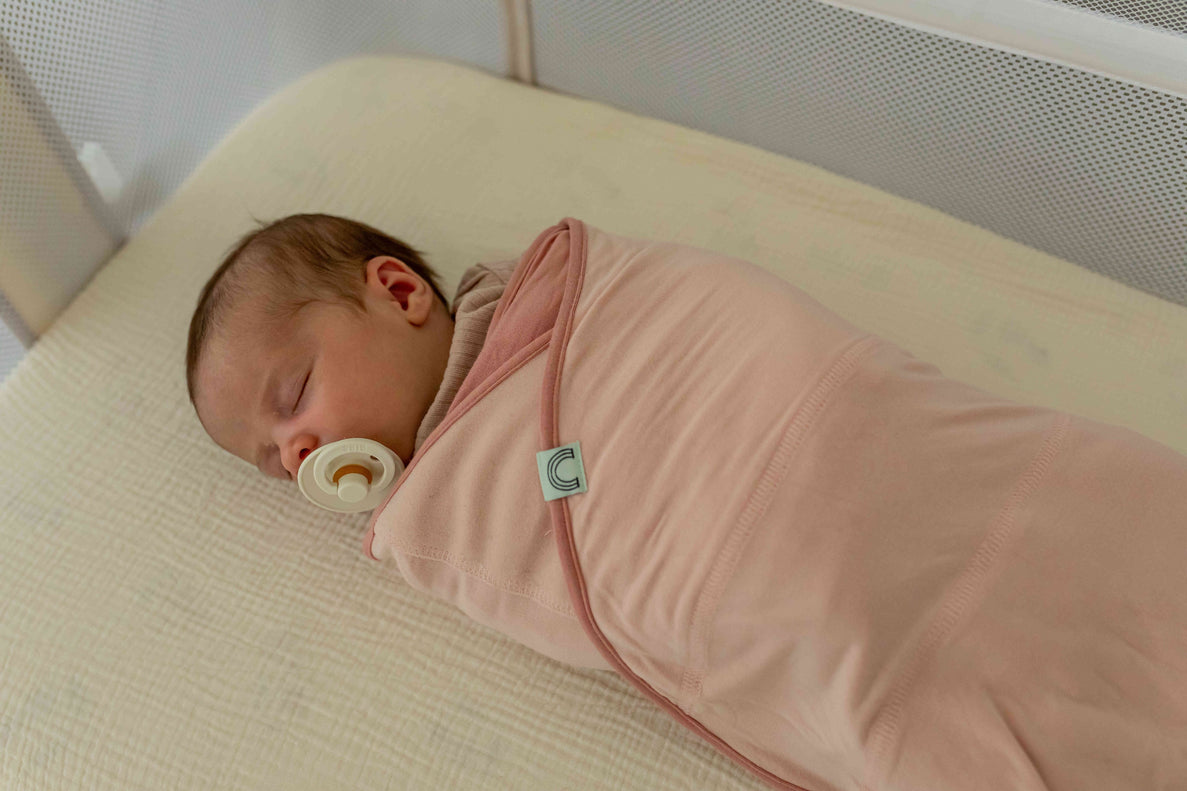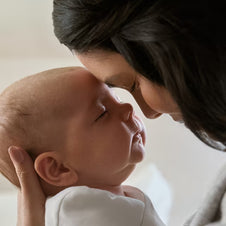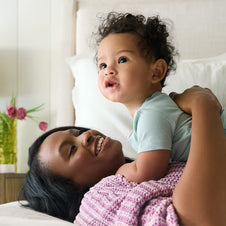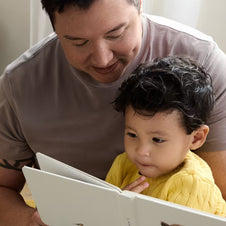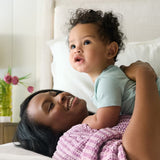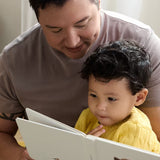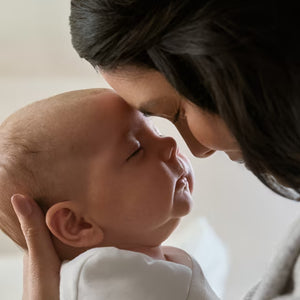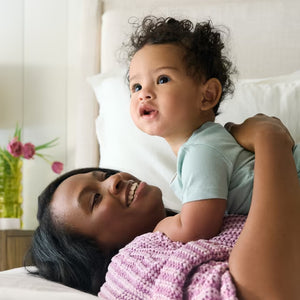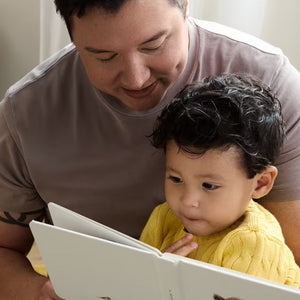Pacifier, Binky, Nuk, Soother, Dummy. I love pacifiers….yes, even for newborns, sleeping babies, and breastfed babies! I get so many questions from parents about newborns sleeping with a pacifier. Let's talk about why I love pacifiers, how to introduce the pacifier, and what to do if the pacifier keeps falling out of your baby's mouth.
Taking Cara Babies Classes
Should my baby use a pacifier?
My answer will always be “It’s up to you and your little one!” There truly is no “right or wrong” approach when it comes to pacifiers. Some babies never take a pacifier, and that’s okay! However, for many babies, pacifiers are helpful tools for comfort and relaxation. Here are the two main reasons I recommend offering a pacifier for newborn sleep.
1. A pacifier allows for non-nutritive sucking.
Obviously, if a baby is hungry, you need to feed him. However, sometimes newborns have a drive to suck even after they’ve finished eating. This is called non-nutritive sucking, which simply means sucking without gaining nutrition or calories.
Non-nutritive sucking has several benefits for your newborn(4):
-
Releases endorphins in the brain
-
Promotes relaxation
-
Provides comfort and security
-
Becomes a helpful tool to encourage sleep
2. SIDS Prevention
The American Academy of Pediatrics (AAP) reports a significantly reduced risk of SIDS with pacifier use, particularly when given to newborns for sleep. (1) This is one of the reasons that I do love newborns sleeping with a pacifier. In a study published by the AAP(1), researchers “recommend that pacifiers be offered to infants as a potential method to reduce the risk of SIDS. The pacifier should be offered to the infant when being placed for all sleep episodes, including daytime naps and nighttime sleep.”
Are pacifiers okay for breastfed babies?
If you’re concerned about the potential of nipple confusion with pacifier use, I have good news for you! Research(2) shows us that nursing moms who introduce a pacifier are JUST as successful with nursing as those who don’t. True scientific research dispels the myth of nipple confusion and shows that limiting pacifiers does not increase nursing success. In summary, yes! Pacifiers are great for breastfed babies.
What is the best pacifier for newborns?
Different babies prefer different pacifiers. Some newborns prefer a flat nipple, others prefer more oval, and some prefer round. There are so many varieties to try. When you’re shopping for a pacifier for your newborn, just be sure to choose the correct size. We don’t want the pacifier to be too big for your newborn’s mouth. I have a collection of my favorite pacifiers for you. If you are looking for a specific type of pacifier, I’ve grouped them for you below:
Best pacifier for breastfed newborn
When looking for a pacifier for your breastfed newborn, you want to pick a pacifier that is lightweight with a soft silicone material that has a bulb shape, since this will closely mimic the natural shape of a nipple. My favorite pacifiers for breastfed babies are:
Best pacifier for preemie
For your preemie or NICU baby, you will want to look for a lightweight pacifier that is easy for your little one to keep in their mouth, and one with ventilation holes. You can opt for a pacifier that has a notch in the pacifier that allows for NICU cords and tubes to sit comfortably near your baby’s face. My favorite pacifiers for preemies are:
-
Phillips Newborn NICU Soothie (has notch on bottom to allow for tubes/cords)
Best pacifier for tongue or lip tie
If you have a baby with a tongue or lip tie, it may be challenging for them to keep a bulb shaped pacifier in their mouth. Instead, you’ll want to offer them a lightweight and flat shaped pacifier that is easier for them to hold independently. My favorite pacifiers for babies with a tongue or lip tie are:
Best pacifier for gassy baby
If your baby struggles with gas, having a pacifier to help soothe them will be helpful. You will want to look for a pacifier that your little one can hold onto securely.
Best orthodontic pacifier
Offering your baby an orthodontic pacifier helps protect your baby’s developing jaw and palette. My favorite orthodontic pacifiers are:
How do I introduce a pacifier?
Step 1: Offer when the baby is calm, not hungry or tired, and swaddled.
Step 2: Apply pressure in the middle of the baby’s tongue.
Step 3: Move the pacifier in circles around his mouth.
Step 4: If your baby becomes frustrated, stop and try again later.
Keep trying each day for a week…if your baby won’t take it, that’s FINE! It’s okay to move on.
Helpful Hints:
- Do not offer in lieu of a feeding…if your baby is hungry, a pacifier won’t satisfy.
- Try different shapes and brands until you find one she likes.
- Sometimes, applying a bit of breast milk or formula to the tip helps.
- Newborns who become distracted by arms waving around often do better with the pacifier when arms are swaddled.
- Remember, a tongue thrust and gag are normal reflexes. Don’t let either scare you away from trying!
Watch me use the steps to introduce a pacifier to a baby who had previously refused it.
What if my newborn won’t take a pacifier?
Even if parents offer a pacifier, some babies simply show no interest in the pacifier. Please know, that’s okay too. Your newborn does NOT have to take the pacifier. You can still have a great newborn sleeper without a pacifier.
My baby wakes when the pacifier falls out. How do I keep the pacifier in her mouth? What do I do if my baby wakes every time the pacifier falls out?
First, let's be sure that you have the right size and shape of pacifier for your baby. Consider trying a different shape that your baby may be able to hold onto more securely. When you offer the pacifier, consider gently pulling the pacifier out of her mouth just a bit. Often babies will suck the pacifier into the mouth more intentionally, making the pacifier less likely to fall out.
If you're still struggling and your baby is 3 months or younger, this first method is for you! Watch this video to see me demonstrate how to gently pull the binky from your newborn’s mouth right before he falls asleep.
Doing this increases the likelihood of him putting himself BACK to sleep in the night without needing it replaced. Now, this skill won’t develop immediately. It may take weeks for your newborn to learn to fall asleep without the pacifier. That’s okay. It’s a work in progress. If your baby begins crying when you pull it from his mouth, just replace the pacifier and try again later. It will take time and patience.
Check out the video below of baby Gio. Mom has been working on this technique. He is now able to put himself to sleep without the pacifier at all. She uses it as part of the nap and bedtime routine, but once she lays him down, he goes to sleep without it. Again, this was only implemented because Gio was crying each time it fell out of his mouth. This strategy is not necessary for babies who are sleeping well with the pacifier. This is simply a technique that can be helpful for babies who are overly dependent upon it.
Should I take the pacifier out after baby falls asleep?
It’s perfectly acceptable for a newborn to sleep with a pacifier. We do need to make sure, however, that we are following safe sleep guidelines with a pacifier. That means no clips or stuffed animals.
How do I stop popping the pacifier back in all night?
My Newborn Sleep Bundle provides step-by-step guidance to decrease the need for pacifier popping all night long. My 5–24 Month Collection allows your baby to have a pacifier at nap time and bedtime, but helps eliminate the need for you to replace it all night (or nap) long!
If your baby is 5 months or older, be sure to check out this binky game to help your baby learn to replace the pacifier on her own!
Is a pacifier required for Taking Cara Babies classes?
Although pacifiers are a helpful tool, they are NOT a requirement for any of my classes. You can have a great little sleeper and a happy baby with, or without, a pacifier.

